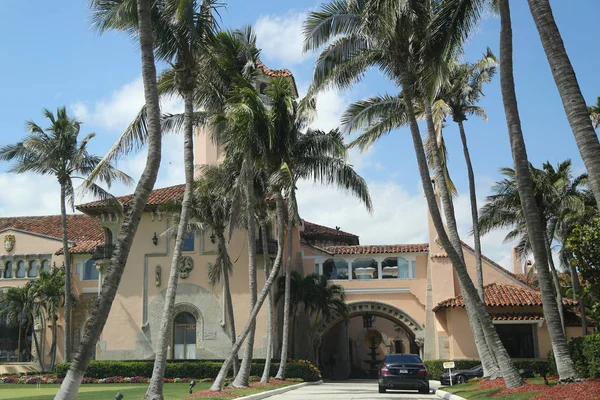Out of Europe to Save Europe
Durable peace on the continent can only arise out of European security cooperation.

Thirty years ago, the godfather of NATO expansion, the late Richard Lugar, Republican senator from Indiana, declared that for NATO to survive in the post-Cold War world, it would have to go “out of area or of business.” Yet in an irony of history, NATO’s search for ever new frontiers to defend may ultimately bring the alliance to grief.
Despite deeply disingenuous protests to the contrary, NATO expansion to include Ukraine was the primary cause of the war now ravaging eastern Ukraine. So the time has come for the Trump administration to begin to think about what had for 80 long years been unthinkable: America’s withdrawal from NATO.
Far from being a radical improvisation by the mercurial Trump, such a withdrawal would be in keeping with the wishes of Dwight D. Eisenhower who, in 1958, expressed his belief that it was high time to to “wean” the Allies from their excessive dependence on the U.S. “and encourage them to make better efforts of their own.”
Eisenhower was ahead of his time. Today, in the aftermath of the failed expansion experiment, the time has come for the Europeans to look after themselves—after all, they can afford it, we cannot. Their neuroses resulting from the bloodbath of 1939–1945 should no longer be allowed to dictate Washington’s security agenda, which in this century is shifting to the Indo-Pacific.
For too long our membership in NATO has eroded the republican foundations on which the country is based. Writing to James Madison in 1789, Thomas Jefferson noted that,
We have already given, in example, one effectual check to the dog of war, by transferring the power of declaring war from the executive to the legislative body, from those who are to spend, to those who are to pay.
Yet NATO’s Article 5 eroded this check—in two ways.
First, as John Henry, chairman of a pro-constitution non-profit, Committee for the Republic, recently noted, “NATO is the alliance that entangles us most. American presidents have repeatedly mischaracterized Article 5 to claim they—not Congress—can take us to war.” This concern was shared by Ohio’s Republican Senator Robert Taft who, in a speech opposing the ratification of the Washington Treaty establishing NATO, worried that the treaty “obligates us to go to war if at any time during the next 20 years anyone makes an armed attack on any of the 12 nations.”
Secondly, the alliance has empowered members (as well as those seeking membership) to effectively wag the dog. In the case of Ukraine, a relatively small but powerful number of ideologues within the Obama and Biden administrations made common cause with the most virulent brand of Galician nationalists and nearly dragged Washington into a direct confrontation with Moscow.
As President Ronald Reagan’s director of the Office of Management and Budget, David Stockman, recently noted, “There is nothing in the U.S. Constitution which empowers Washington to be in the business of spreading, underwriting and militarily guaranteeing democracy around the world.”
At last weekend’s Munich Security Conference (MSC), Vice President J.D. Vance put Europe on notice: Trump is the “new sheriff in town” who “believes that our European friends must play a bigger role in the future of this continent.”
And while the Europeans clutched their pearls at Vance’s effrontery, what he said was much in line with the remarks he made to the conference last year, when he noted,
The problem with Europe is that it doesn’t provide enough of a deterrence on its own because it hasn’t taken the initiative in its own security, The American security blanket has allowed European security to atrophy.
Meanwhile, Europe’s response to the “new sheriff” taking it upon himself to do that which Joe Biden had neither the strength, confidence nor sense to do and begin peace talks with Moscow, has been marked by a combination of panic, bitterness, and, in the case of Ukraine’s Zelensky, fantasy. Last week the Ukrainian president called for the deployment of a European peacekeeping force of between 150,000–200,000 to Ukraine.
For his part, France’s Emmanuel Macron has taken up the rallying cry of the Biden administration: “nothing about Ukraine without Ukraine.” Macron, faced with Trump’s determination to end the war with or without Europe at the table, has suddenly rediscovered his once-favored policy of “strategic autonomy.” It is now time, he told the Financial Times last week, for Europe to “muscle up” and develop a fully integrated “defense, industrial and technological base.”
“If all we do is become bigger clients of the US then in 20 years,” said Macron, “we still won’t have solved the question of European sovereignty.”
A small step in the direction of European sovereignty took place on Monday at the Elysée Palace, where Macron convened what was billed as an “emergency meeting” of European leaders in response to being frozen out of Trump’s approach to Moscow. What resulted was a steady stream of probably empty proclamations of support for Zelensky along with the acknowledgment that, in the words of the UK’s prime minister Keir Starmer, “It’s time for us to take responsibility for our security, for our continent.”
If nothing else the Europeans have gotten the message: Eighty years after the Second World War, it is time they stand on their own. Whether they actually will remains a very open question.
An equally open question—and one that the Trump administration will have to confront once it at long last dispatches with Ukraine—has to do with patching up relations between Europe and its restive neighbor to the East.
Henry Kissinger famously groused, “Who do I call when I want to call Europe?” Macron clearly believes it is he who should receive that call, but, more likely than not, after the German elections on February 23 it will be the leader of the conservative Christian Democrats, Friedrich Merz, who actually will. Whatever the case, the task of repairing the badly frayed—if not completely broken—relations between Russia and Europe will need attention. The task will be made all that more challenging due to the enmity with which the European and Russian political establishments view one another after ten long years of diplomatic wrangling and then actual war fighting over the fate of eastern Ukraine.
A sense of how some members of the Russian establishment view Europe comes courtesy of an essay by Sergey Karaganov, a well known political scientist and honorary chairman of Russia’s Council on Foreign and Defense Policy, published last month in the Russian magazine Profile. While it is not at all clear that these sentiments are shared by the Russian president, they are worth quoting at some length because they indicate the depth of anger that exists towards Europe in some quarters of Russia:
Since Soviet times and based on the experience of working with de Gaulle, Mitterrand, Brandt, Schroeder and the like, we have become accustomed to considering the Americans to be the main instigators of confrontation and the militarization of politics in the West. This is not entirely true, and now it is not true at all. It was Churchill who, when it seemed advantageous to him, drew the US into the Cold War. It was European strategists (they still existed then), and not the Americans, who initiated the missile crisis of the 1970s. The list of examples is long. Now the Euro-elites are the main sponsors of the Kyiv junta. They, having forgotten that it was their predecessors who unleashed two world wars, are pushing Europe and the world towards a third. Sending Ukrainian cannon fodder to the slaughter, they are preparing new ones—Eastern Europeans from a number of Balkan states, Romania, and Poland. They have begun to deploy mobile bases where they are training contingents of potential landsknechts. They will try to continue the war not only until the “last Ukrainian,” but soon until the “last Eastern European.”
NATO and Brussels anti-Russian propaganda already surpasses Hitler’s…. Peace on the subcontinent can be established only when Europe’s back is broken once again, as happened as a result of our victories over Napoleon and Hitler, when a change of generation of the current elites occurs.
The mirror image of such ideas are found all over the West, particularly among Russophobe policymakers, scholars, journalists who have taken up the rallying cry of “decolonization” (i.e. the destruction) of Russia.
The challenge the Trump administration will have to confront after the dust settles in the Donbas is the question of a just and secure European settlement, one that takes into consideration the security requirements of every state from Lisbon to Vladivostok.
May 9 marks 80 years since the end of the Second World War in Europe and could provide an opening for the administration to channel what was once known as “The Spirit of the Elbe” to begin the long, arduous process of creating a Europe whole and free. Given the likely intransigence of the Poles, the Balts, the British and elements of the French and German political establishments (especially among Greens and the center-left), this will be perhaps an even heavier lift than ending the war in Ukraine. But the Europeans seem to have willfully forgotten who it was exactly who freed the camps—likely because they are trying to forget who set them up, then operated them, in the first place.
It is in the American interest to have a semblance of comity on the continent. That requires, among other things, demilitarizing America’s role in Europe. After Ukraine comes the hard work: that of peacemaking.
The post Out of Europe to Save Europe appeared first on The American Conservative.

